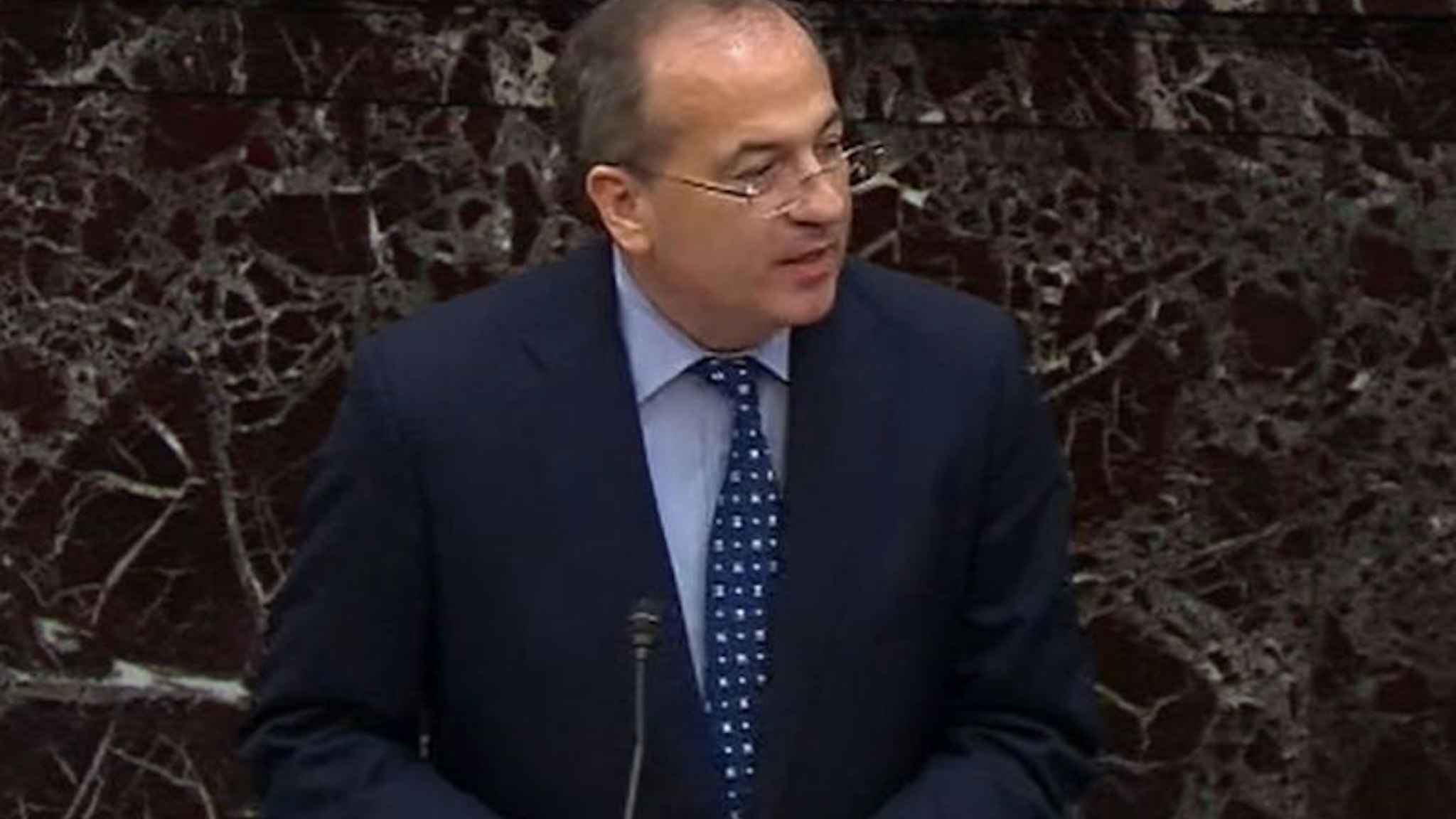During a Tuesday morning impeachment roundup, “The View” co-host Sunny Hostin took major issue with the way Robert Ray, an attorney for the president’s defense, portrayed The New York Times’ “1619” project — a series of articles that the news organization hopes will “reframe the country’s history by placing the consequences of slavery and the contributions of black Americans at the very center of our national narrative.”
RAY: In a[n] ahistorical sleight of hand worthy only of the Times’ recent “1619” series — a series, by the way, roundly criticized by two of my Princeton [University] Civil War and Reconstruction history professors as inaccurate.
“What could any of that have to do — I thought that was just a dog whistle, you know, a racist dog whistle quite frankly, to the base. I didn’t understand it, I didn’t think it was effective,” says Hostin, as co-host Joy Behar decried it as a “smokescreen,” according to the Washington Examiner.
During the trial, Sen. Tim Kaine (D-VA) was also unsettled by the reference, and told USA Today that “it seemed like an ad hominem attack on people trying to get at the roots of the effects of slavery in the United States.”
People who have been following the reaction of leading historians to the Times’ slavery project will understand that the president’s lawyer invoking the “1619” project to make a point about an “ahistorical sleight of hand” isn’t a “dog whistle.” Rather, it’s a point directed at the serious factual inaccuracies that plague the Times’ project.
Sean Wilitz, a history professor at Princeton University, recently published a comprehensive article in The Atlantic talking about factual problems within the Times’ “1619” project.
One of the statements Wilitz takes issue with includes an assertion that “one of the primary reasons the colonists decided to declare their independence from Britain was because they wanted to protect the institution of slavery.” Wilitz thoroughly refutes this point:
By 1776, Britain had grown deeply conflicted over its role in the barbaric institution that had reshaped the Western Hemisphere,” Hannah-Jones wrote. But apart from the activity of the pioneering abolitionist Granville Sharp, Britain was hardly conflicted at all in 1776 over its involvement in the slave system. Sharp played a key role in securing the 1772 Somerset v. Stewart ruling, which declared that chattel slavery was not recognized in English common law. That ruling did little, however, to reverse Britain’s devotion to human bondage, which lay almost entirely in its colonial slavery and its heavy involvement in the Atlantic slave trade. Nor did it generate a movement inside Britain in opposition to either slavery or the slave trade. As the historian Christopher Leslie Brown writes in his authoritative study of British abolitionism, Moral Capital, Sharp “worked tirelessly against the institution of slavery everywhere within the British Empire after 1772, but for many years in England he would stand nearly alone.” What Hannah-Jones described as a perceptible British threat to American slavery in 1776 in fact did not exist.
In London, there were growing calls to abolish the slave trade,” Hannah-Jones continued. But the movement in London to abolish the slave trade formed only in 1787, largely inspired, as Brown demonstrates in great detail, by American antislavery opinion that had arisen in the 1760s and ’70s. There were no “growing calls” in London to abolish the trade as early as 1776.
This would have upended the economy of the colonies, in both the North and the South,” Hannah-Jones wrote. But the colonists had themselves taken decisive steps to end the Atlantic slave trade from 1769 to 1774. During that time, Maryland, New Jersey, Pennsylvania, Connecticut, and Rhode Island either outlawed the trade or imposed prohibitive duties on it. Measures to abolish the trade also won approval in Massachusetts, Delaware, New York, and Virginia, but were denied by royal officials. The colonials’ motives were not always humanitarian: Virginia, for example, had more enslaved black people than it needed to sustain its economy and saw the further importation of Africans as a threat to social order. But the Americans who attempted to end the trade did not believe that they were committing economic suicide.
Wilitz continues to bring up other points, and comments that saying the “reason the Revolution was fought was to protect slavery” is as inaccurate as saying “that southern secession and the Civil War had nothing to do with slavery.”
Wilitz and other leading historians recently wrote a letter to the Times asking them to correct factual errors inside the project, while maintaining that they still believed in the goal of educating the public about slavery. The news organization responded with its own letter, saying in part that “we disagree with their claim that our project contains significant factual errors and is driven by ideology rather than historical understanding.”

